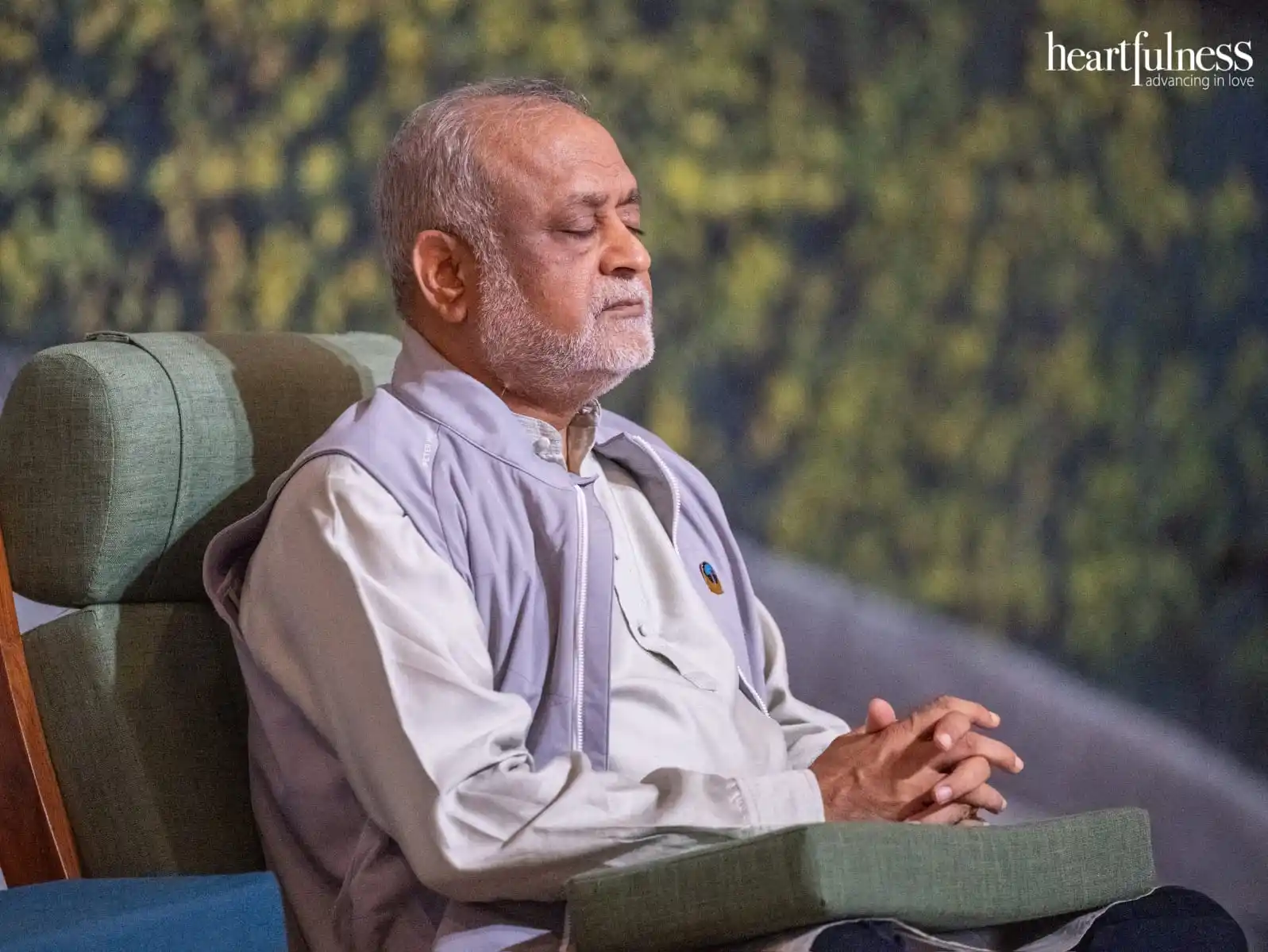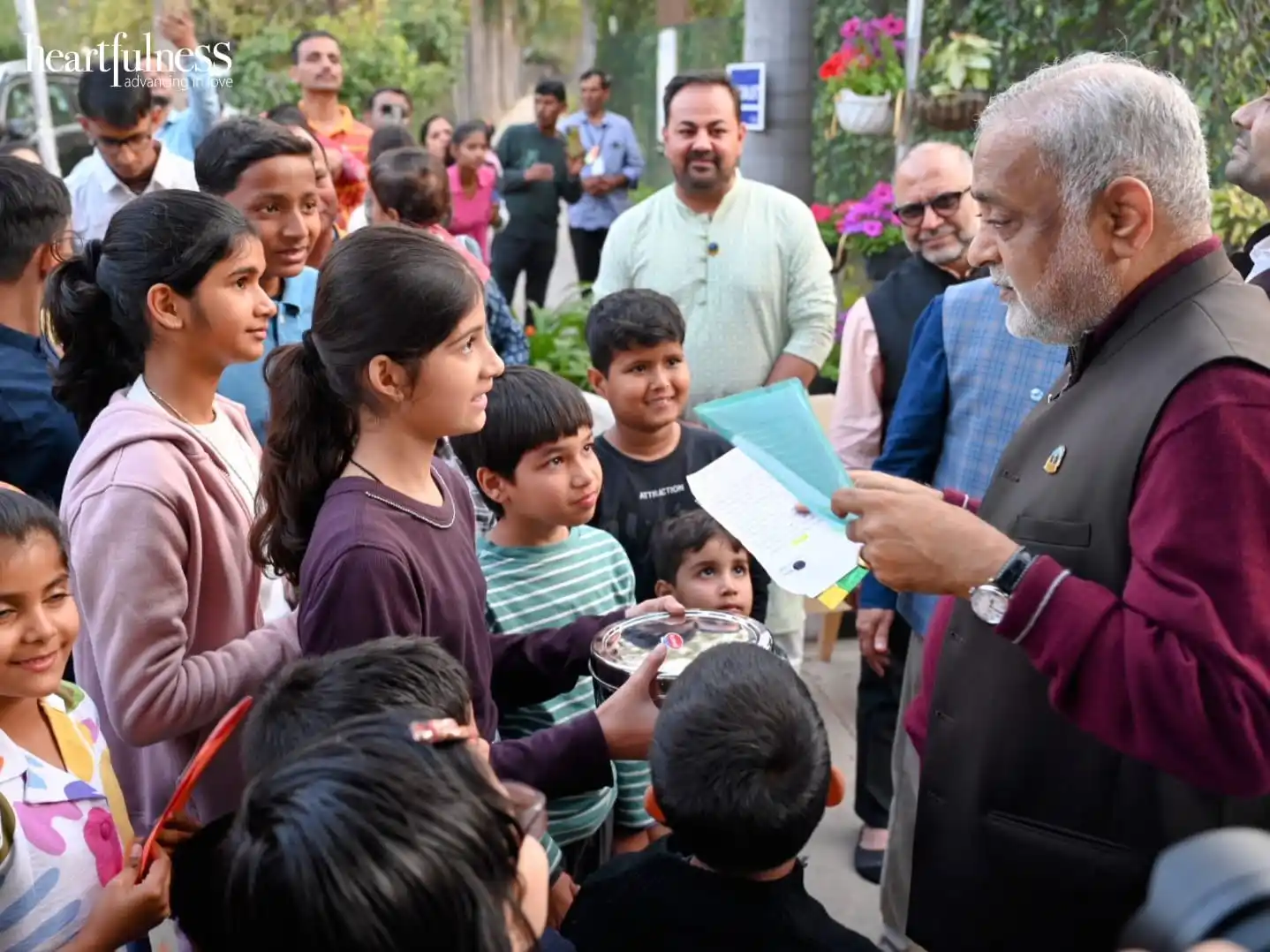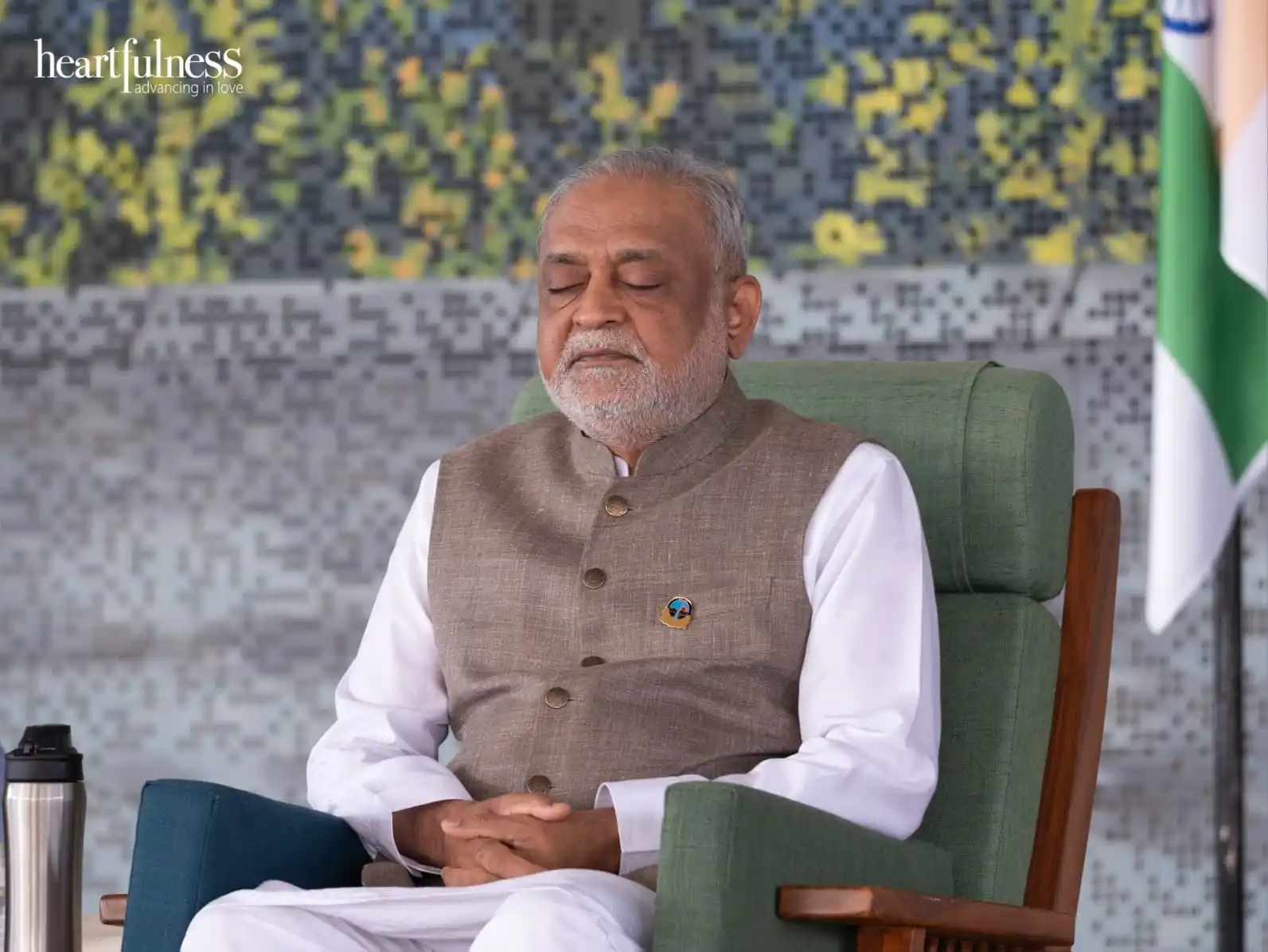Kamlesh D Patel- Daaji
17.7K subscribers
About Kamlesh D Patel- Daaji
The official channel of Daaji- Kamlesh D Patel, Global Guide of @heartfulness, facilitating heart-based meditation. For more details, please visit www.daaji.org
Similar Channels
Swipe to see more
Posts
The most fascinating aspect of Heartfulness is Pranahuti, also known as Yogic Transmission. Transmission has been defined as ‘the utilization of divine energy for the transformation of a human being.’ Here, it is not about physical transformation, as our bodies are limited by our genetic makeup. Instead, it refers to the transformation of our personality, character, and the mental, intellectual, and ego spheres.

Acknowledging and accepting the intrinsic goodness in everyone’s heart is the beginning of forgiveness. This heartfelt acceptance allows us to transcend the need for mere tolerance or surrender. The heart's intrinsic goodness enables us to accept all as ours. By the same token, it allows us to become theirs. Thus, all that happens is for all of us, and together, we shape our shared destiny.

How to handle thoughts that arise during meditation? The best practice is to treat thoughts like clouds passing through the sky. Do not entertain them, nor try to forcefully remove them. Simply let them pass, and if necessary, gently remind yourself that you are meditating.

When we see Lord Shiva, Lord Rama, or Lord Krishna in deep meditation, a question arises in our hearts—what are they meditating upon? Why do they meditate? If they are divine incarnations, is there even a need for them to meditate? Their example teaches us that even in a state of perfection, meditation remains essential. There are many reasons why one must continue meditating, even after reaching great spiritual heights. Meditation is not just a means to achieve a personal goal; it extends beyond the self. Through meditation, we contribute to the well-being of others, fostering transformation and harmony.

Meditation is a process through which we evolve from thinking to feeling. It is a journey from the complexity of the mind to the simplicity of the heart. Yet, even feeling has its limitations. In true meditation, we go beyond feeling and experience, reaching a state of oneness with the object of meditation. Eventually, this dissolves into something beyond experience—the absolute, ultimate essence of existence—which cannot be described. This is a sign of being in osmosis with the Source.

Loving Him who loves all aligns us with universal principles, granting inner freedom, deepening our spiritual connection, and fostering compassion. By directing our love toward the Divine or universal consciousness, it becomes selfless and expansive.
The preparation for morning meditation, along with the complementary practices of evening cleaning and bedtime prayer, sets the attitude and inner state. Heartfulness Cleaning removes impurities and complexities from the system, while prayer re-establishes our lively connection with the Center, allowing it to continue during sleep. Before going to bed, if you subtly suggest that you are being prepared through the night for morning meditation, you will wake up feeling refreshed and slip into meditation with ease.
The best time for meditation is just before dawn, when night meets day. "Rise before dawn and meditate at a fixed hour, preferably before sunrise." At this time, nature's energy is still helping us become still too. With minimal solar influence, it's easier to connect with the universe's original state before heat manifested.
Making meditation a daily habit is vital. The four essential elements for establishing this habit are a fixed time, preferably before dawn; a dedicated place; a steady posture; and purity of mind and body. Meditating in an upright sitting posture has been considered most beneficial since ancient times, as it allows the flow of divine grace to descend directly upon the seeker.
When we focus our love on one who embodies universal love—be it the Divine, a spiritual guide, or universal consciousness—it transforms from personal and conditional to expansive and selfless. This shift fosters detachment, not as indifference, but as unconditional care and compassion. Detachment here means: Freeing love from expectations and selfish desires. Honoring others' individuality without clinging or control. Finding joy in giving love without needing reciprocation. Heartfulness emphasizes this: Love becomes inclusive, pure, and purposeful. When directed toward one who loves all, it anchors our emotional and spiritual self.










